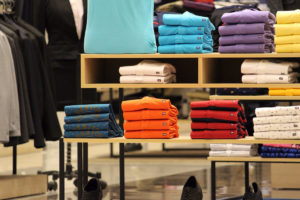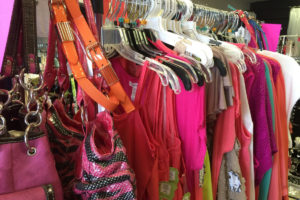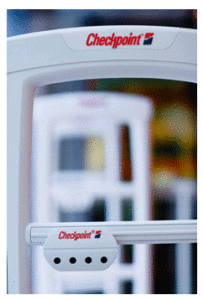 For a small business owner, bringing sales to their business is not an easy feat. It requires lots of hard work and diligence. For an owner or manager of a retail store, it requires a lot of hard work to be profitable and to prevent shrink and losses in their stores.
For a small business owner, bringing sales to their business is not an easy feat. It requires lots of hard work and diligence. For an owner or manager of a retail store, it requires a lot of hard work to be profitable and to prevent shrink and losses in their stores.
For them, the acquisition of affordable technology and software to help them prevent losses due to shoplifting, shrinkage, clerical or merchant errors is instrumental in having a successful and profitable business.
For many years now, the increased use of technology and the benefits associated with it has been self-evident in many industries, and the retail industry is no exception.
The value and transformation technology has brought to retailers, merchants and customers have been invaluable to them and to their bottom line. Technology usage has allowed them to decreased costs while maintaining better data and solutions that allow them to target specific areas within their business.
RFID systems and software have been around for many years now, but the adoption rates have increased considerably over the last few years due the lower cost and ease of use. Still, small retailers that are struggling financially will be less inclined to invest in an RFID system or any other type of loss prevention system despite needing it most.
The cost associated with acquiring a system that will help prevent losses, and help you target issues in your retail store can help you recover the cost associated with the system within a year in many cases.
Loss prevention systems and the costs associated with them can vary considerably, but businesses have many options depending on what they want the system to accomplish. Here is a technology linked with the retail industry that may be gaining ground with many benefits associated with its adoption.
RFID technology
- RFIDs systems usage has provided many merchants great ROI and revenue increase within the first year of usage. The capabilities of this system to provide accurate inventory to the store owner or manager of the stores has seen an increase in their revenues while providing customers the merchandise they need and want.
- RFID technology will allow businesses across industries up to the minute data and reliable inventory data.
- RFID technology will save expenses where inventory related labor is concerned while achieving better and more accurate inventory data.
Acquiring a loss prevention system can be daunting in the beginning due to the financial expense the business has to go through, but it is necessary if the business wants to stay competitive and profitable.

 In every career, there are people, places, and things that help to shape who you become in that career. A Retail Loss Prevention career is no different. My career in Loss Prevention goes back nearly 27 years. A long time ago in a department store not far away I was hired as a Loss Prevention Associate with only my military experience and a college degree in hand. I had absolutely no Loss Prevention background. There have been lessons learned along the way that shaped the way I approached Loss Prevention and the way I developed my style of working with people and managing others.
In every career, there are people, places, and things that help to shape who you become in that career. A Retail Loss Prevention career is no different. My career in Loss Prevention goes back nearly 27 years. A long time ago in a department store not far away I was hired as a Loss Prevention Associate with only my military experience and a college degree in hand. I had absolutely no Loss Prevention background. There have been lessons learned along the way that shaped the way I approached Loss Prevention and the way I developed my style of working with people and managing others. How many times have you caught yourself in a conversation with another manager or a supervisor discussing a seasonal merchandise question or an inventory preparation question and found yourself saying, “I think we did it this way” or “ It seems to me customers were buying such and such last year”? It can be frustrating, especially when the discussion may influence whether an item should be carried or if it was carried the prior year was it a flop? The same thing happens with inventory. Did we start prepping 5 days out? No? Maybe it was 3 days out. Having checklists can make these conversations fewer in number and improve productivity as well as sales performance.
How many times have you caught yourself in a conversation with another manager or a supervisor discussing a seasonal merchandise question or an inventory preparation question and found yourself saying, “I think we did it this way” or “ It seems to me customers were buying such and such last year”? It can be frustrating, especially when the discussion may influence whether an item should be carried or if it was carried the prior year was it a flop? The same thing happens with inventory. Did we start prepping 5 days out? No? Maybe it was 3 days out. Having checklists can make these conversations fewer in number and improve productivity as well as sales performance.
 We supply and install the best anti-shoplifting equipment made. Checkpoint Systems is the gold standard of Electronic Article Surveillance (EAS) equipment. Support is off the chart. Checkpoint Systems has factory Tech’s everywhere, I mean EVERYWHERE. They have to since the majority of the top retailers in the world are using Checkpoint equipment. These Techs are not sub-contractors. They are skilled EAS, Radio Frequency (RF) experts. As an example, my Sr. Tech Dan is a former Navy Electronics Technician; he worked on highly advanced systems that protect our country.
We supply and install the best anti-shoplifting equipment made. Checkpoint Systems is the gold standard of Electronic Article Surveillance (EAS) equipment. Support is off the chart. Checkpoint Systems has factory Tech’s everywhere, I mean EVERYWHERE. They have to since the majority of the top retailers in the world are using Checkpoint equipment. These Techs are not sub-contractors. They are skilled EAS, Radio Frequency (RF) experts. As an example, my Sr. Tech Dan is a former Navy Electronics Technician; he worked on highly advanced systems that protect our country. Loss Prevention Managers and Associates use audits on a regular basis to keep track of merchandise that may be potentially high theft items. The items may be high dollar such as iPods, laptops, computer tablets and so on. The products being audited may simply be easy to steal and resell. Such items can include a variety of products ranging from drill bits to medicines, razor blades and even fragrances. Audits are an effective tool for Loss Prevention departments to quickly identify theft trends and to begin investigating when and how losses are taking place. For stores that cannot afford a Loss Prevention department, it falls upon store owners and managers to investigate missing merchandise. The question then becomes, how does a management team decide what items should be audited or when audits should take place?
Loss Prevention Managers and Associates use audits on a regular basis to keep track of merchandise that may be potentially high theft items. The items may be high dollar such as iPods, laptops, computer tablets and so on. The products being audited may simply be easy to steal and resell. Such items can include a variety of products ranging from drill bits to medicines, razor blades and even fragrances. Audits are an effective tool for Loss Prevention departments to quickly identify theft trends and to begin investigating when and how losses are taking place. For stores that cannot afford a Loss Prevention department, it falls upon store owners and managers to investigate missing merchandise. The question then becomes, how does a management team decide what items should be audited or when audits should take place?  Actions based on good intentions don’t always have good results. One of the most famous of missteps was the Coca-Cola attempt to improve its formula and market “New” Coke. The idea was well-intentioned but the public reception was cool if not outright hostile. According to the website INVESTOPEDIA, “ “Classic Coke” returned to the shelves less than three months after it had been retired.” In the same article, they point out that in 2008 the manufacturer of Motrin found out that there was a problem with the medicine not dissolving properly. Reportedly they did not want to “incur the associated negative publicity, the firm sent out secret shoppers to buy the products off of store shelves, which resulted in a lawsuit in Oregon in 2011.” (“8 Good Intentions With Bad Outcomes”, Lisa Smith, updated December 15, 2017). Laws can have the same problems of unintended consequences, helping one constituency while hurting another.
Actions based on good intentions don’t always have good results. One of the most famous of missteps was the Coca-Cola attempt to improve its formula and market “New” Coke. The idea was well-intentioned but the public reception was cool if not outright hostile. According to the website INVESTOPEDIA, “ “Classic Coke” returned to the shelves less than three months after it had been retired.” In the same article, they point out that in 2008 the manufacturer of Motrin found out that there was a problem with the medicine not dissolving properly. Reportedly they did not want to “incur the associated negative publicity, the firm sent out secret shoppers to buy the products off of store shelves, which resulted in a lawsuit in Oregon in 2011.” (“8 Good Intentions With Bad Outcomes”, Lisa Smith, updated December 15, 2017). Laws can have the same problems of unintended consequences, helping one constituency while hurting another. Inventory in a retail store can offer the management and the loss prevention team a clear picture of whether their efforts are working or they need to modify something entirely different.
Inventory in a retail store can offer the management and the loss prevention team a clear picture of whether their efforts are working or they need to modify something entirely different.  Shoplifters seem to be getting bolder than ever. Much of this is greed. Many people simply want stuff and have no moral compass. Others are emboldened by lax law enforcement or Politicians that pass laws that do little to protect you. Whatever the case be, it has a negative impact on Retailers. We are expected to open our stores, compete, pay employees, pay expenses, taxes…. And make a profit. Shoplifting theft is yet another pressure on us.
Shoplifters seem to be getting bolder than ever. Much of this is greed. Many people simply want stuff and have no moral compass. Others are emboldened by lax law enforcement or Politicians that pass laws that do little to protect you. Whatever the case be, it has a negative impact on Retailers. We are expected to open our stores, compete, pay employees, pay expenses, taxes…. And make a profit. Shoplifting theft is yet another pressure on us.